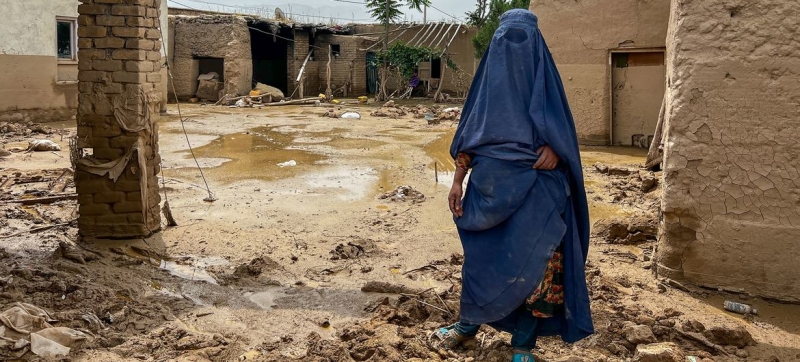
Data from a new report by UN Women Girls and women are gradually being forced out of almost all spheres of Afghan life. UN Special Representative: “Isolation of Afghanistan is not a solution” Humanitarian Aid
Thanks to generous donor support, the UN has been able to provide assistance to 15.3 million Afghans this year, Roza Otunbayeva, the UN Special Representative in the country and head of the UN Assistance Mission in Afghanistan (UNAMA), said at a Security Council meeting on Thursday on the situation in Afghanistan.
“We are committed to helping millions of women, men, girls and boys in Afghanistan,” Otunbayeva said.
According to her, restrictions imposed by the country’s de facto authorities on Afghan women working for local and international non-governmental organizations and the UN remain a serious obstacle to humanitarian work in Afghanistan.
“Through our engagement, including with the de facto authorities, we seek to create a platform for constructive dialogue in support of peace and stability in Afghanistan, while adhering to the international principles that we are mandated to uphold,” the Special Representative said. “The ultimate goal of these efforts must be the reintegration of Afghanistan into the international community.”
“Unprecedented” Restrictions on Women
Since the last briefing to the Security Council in September this year, Roza Otunbayeva continued, the de facto authorities in Afghanistan have continued to resolutely defend their vision of an Islamic social system and their interpretation of Afghan culture, which is characterized by “unprecedented” restrictions on women and girls. For several years now, girls have not had access to formal education beyond the sixth grade.
Girls and women are gradually being forced out of almost all spheres of Afghan life. In early December, the de facto authorities announced that female students would be banned from attending medical facilities and higher education institutions. If this measure is fully implemented, Otunbayeva emphasized, this step will have disastrous consequences for entire communities and the country as a whole. In this regard, the Special Representative called on the de facto authorities of Afghanistan to reconsider their decision.
Read also:
INTERVIEW | “The Taliban’s Attitude Towards Women Contradicts Islam”
Pressure on the Media and Civil Society
“In our report published on 26 November, we documented a growing pattern of media restrictions that undermine the ability of journalists and media workers to be cornerstones of informed, inclusive, vibrant and developing societies,” the Special Representative said. “The space for public debate, including on key issues such as the rights of women and girls, continues to shrink, amid restrictions on political parties and civil society. Political decision-making by the de facto authorities is becoming increasingly opaque.”
In conclusion, Roza Otunbayeva called on the international community to go beyond condemning the actions of the Taliban and not to contribute to the isolation of Afghanistan.
“Isolation is not a solution,” she stressed. “We must be patient and pragmatic, but at the same time firm and resolute in upholding our principles. But first of all, we need to do everything to support the Afghan people.”
“In the grip of a staggering humanitarian crisis”
Despite the fact that Afghanistan rarely makes headlines these days, Afghanistan remains “in the grip of a staggering humanitarian crisis,” Under-Secretary-General for Humanitarian Affairs and UN Emergency Relief Coordinator Tom Fletcher said at a Security Council meeting.
“The country’s economy is extremely fragile,” he said. “Nearly half the population lives in poverty. Extreme weather events this year have resulted in thousands of Afghans losing their livestock, crops and homes. More than a third of the population lacks access to health care. One in three Afghans is food insecure. Malnutrition rates are alarmingly high and rising.”
All these problems are exacerbated by the ongoing return of Afghan refugees from neighboring countries – this year their number has exceeded one million people. Overall, according to Tom Fletcher, about half of the country’s population requires external support, making Afghanistan the second largest humanitarian crisis in the world, second only to Sudan.
“Afghans face enormous difficulties, but they have not lost hope,” the UN Deputy Secretary-General emphasized. “They have not stopped striving to realize their rights and freedoms and believing in the future. We must not stop either.”
